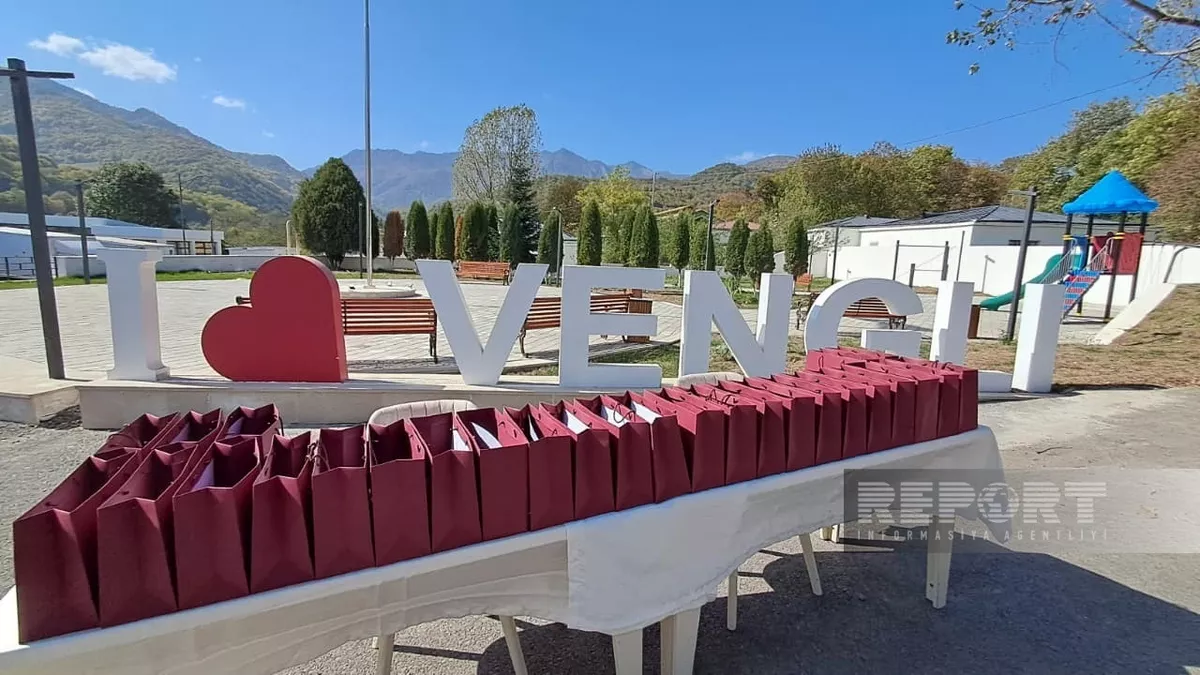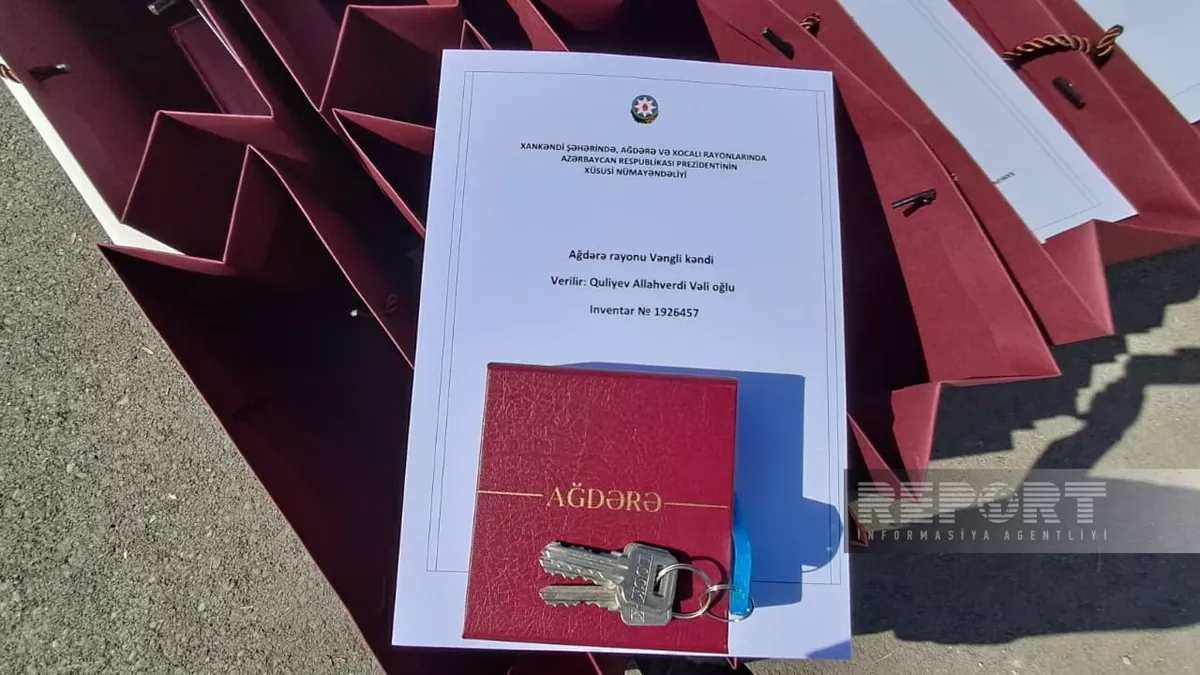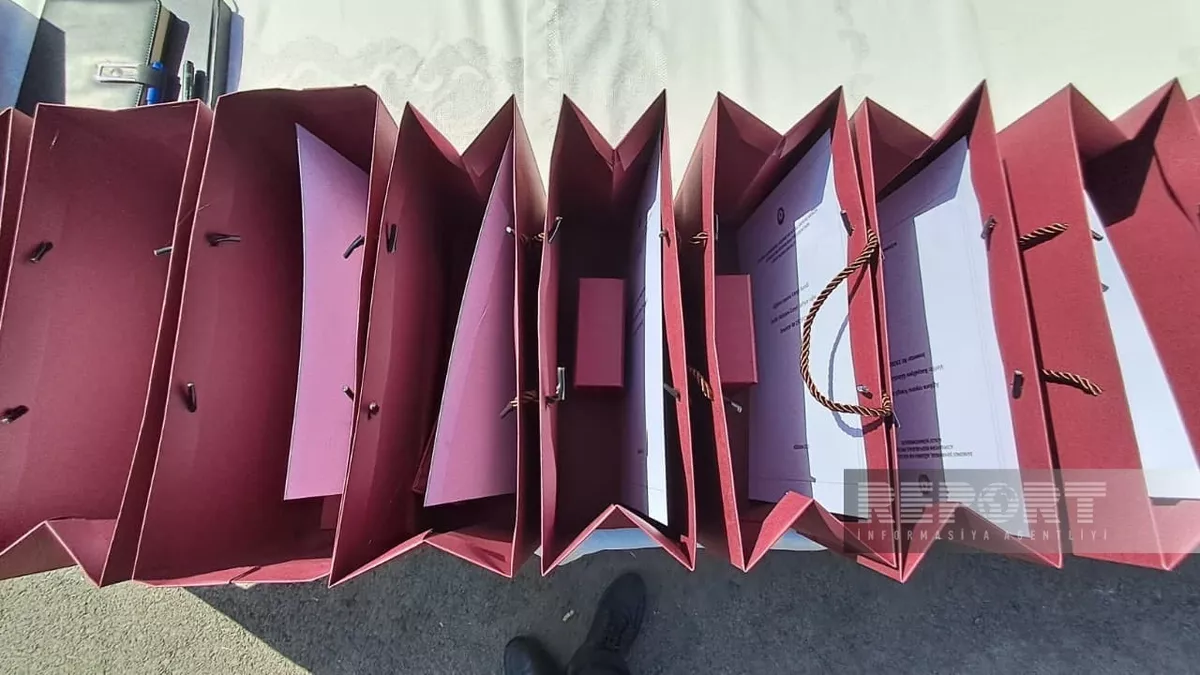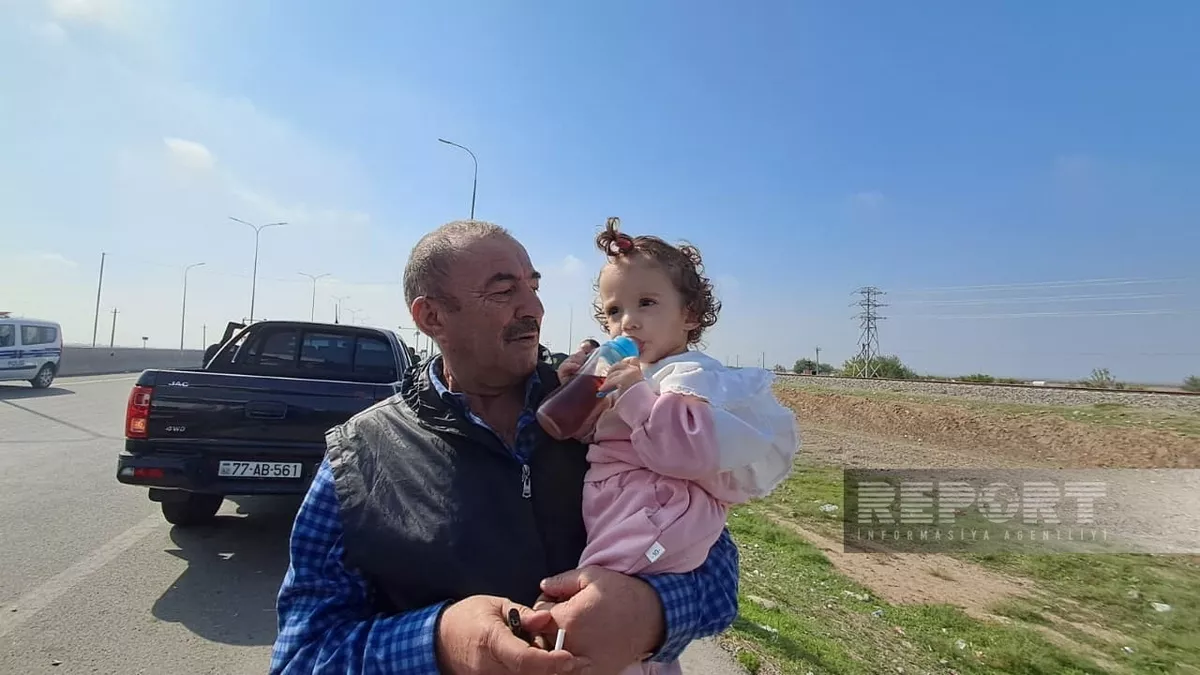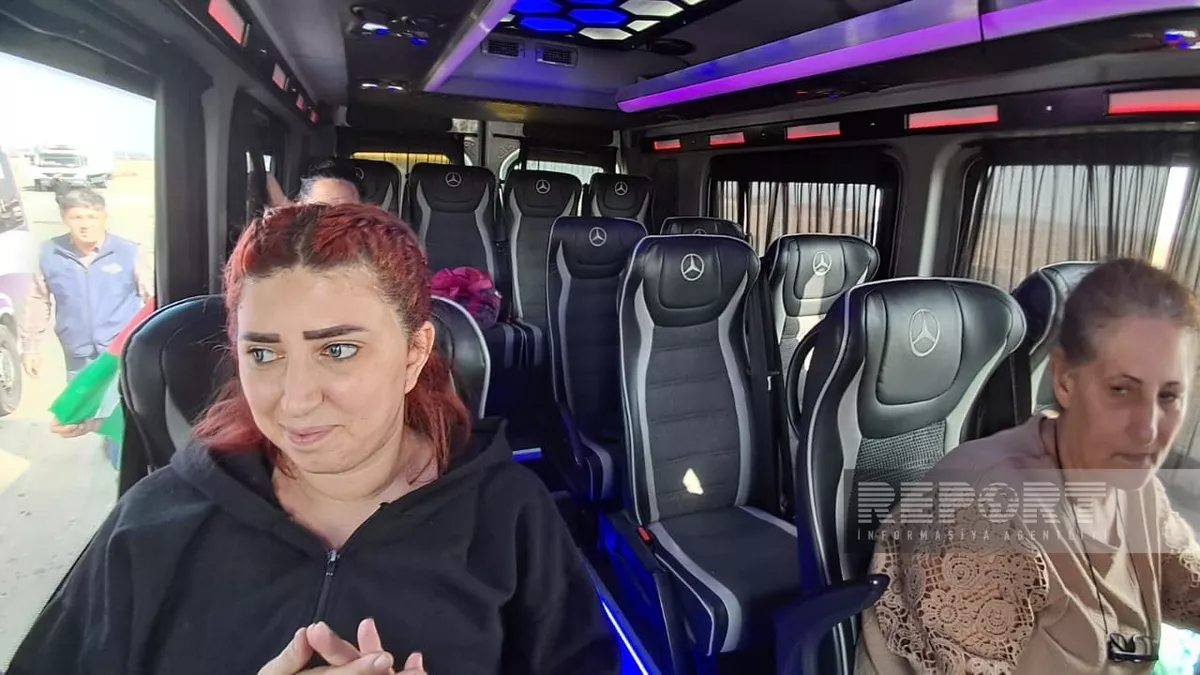Great Return: Former displaced residents receive keys to new homes in Vangli, Karabakh PHOTO / Updated
A new group of former displaced residents has returned to the village of Vangli, receiving keys to newly constructed homes.
The handover ceremony was attended by officials from the Special Representative of the President of Azerbaijan in Khankendi, as well as representatives from the Aghdara and Khojaly districts, Caliber.Az reports, citing local media.
Senior figures from the State Committee for Refugees and Internally Displaced Persons were also present.
13:20
After many years away, the emotional moment of returning to his native village is hard for Shakir Behbudov to describe.
Speaking to local media, the Vangli resident recounted returning to the village with his family.
“I have been involved in the fighting since the very first days of the war. My father was killed in one of the battles. If only he could witness this day… Today, I return to my family home with my loved ones. Words cannot capture the happiness we feel,” he said.
Behbudov also paid tribute to those who lost their lives during the conflict. “We pray for the souls of our martyrs, who have given us this pride and joy,” he added.
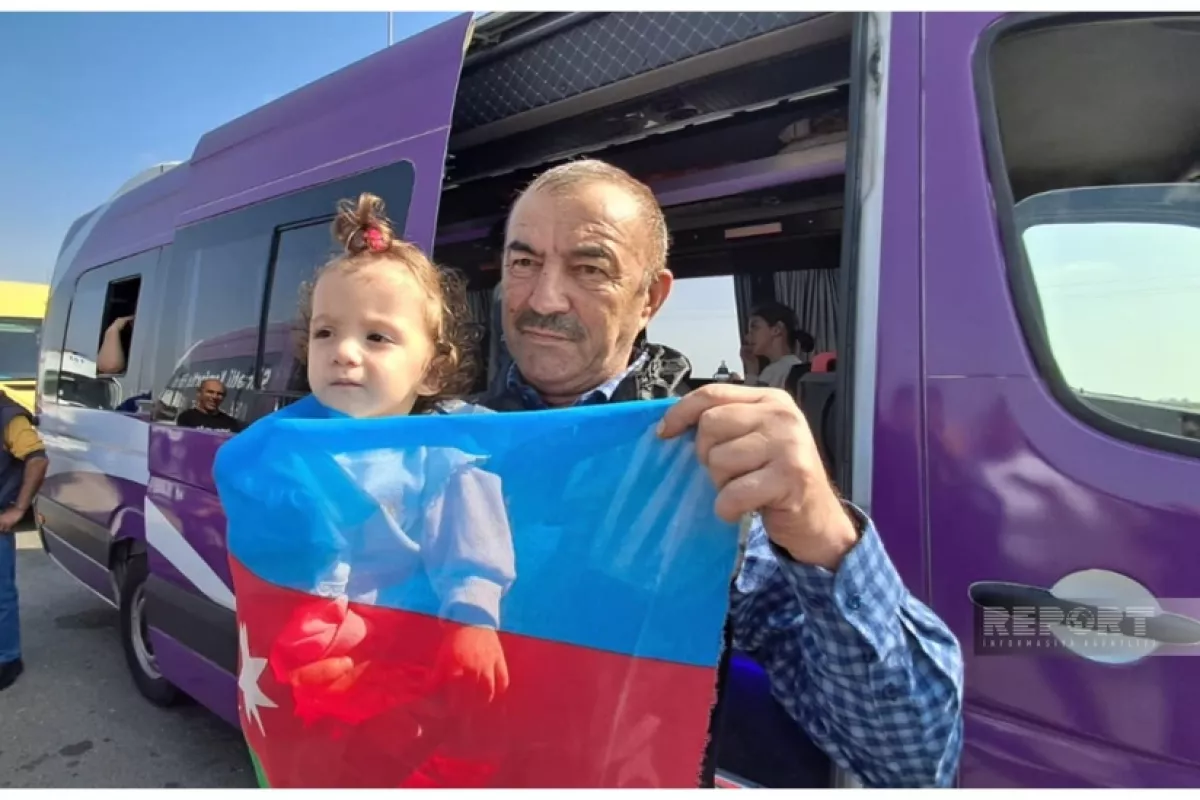
12:50
A new group of former internally displaced persons has moved to the village of Vangli in the Aghdara district.
Thus, 28 families — a total of 112 people — are resettling in the village at this stage, Caliber.Az reports per local media.
With this latest group, the number of families who have returned to Vangli has reached 79, comprising 158 people in total.
Residents of the Aghdara village of Vangli were denied access to their historical monuments for decades due to restrictions imposed by the Armenian side, a local resident has said.
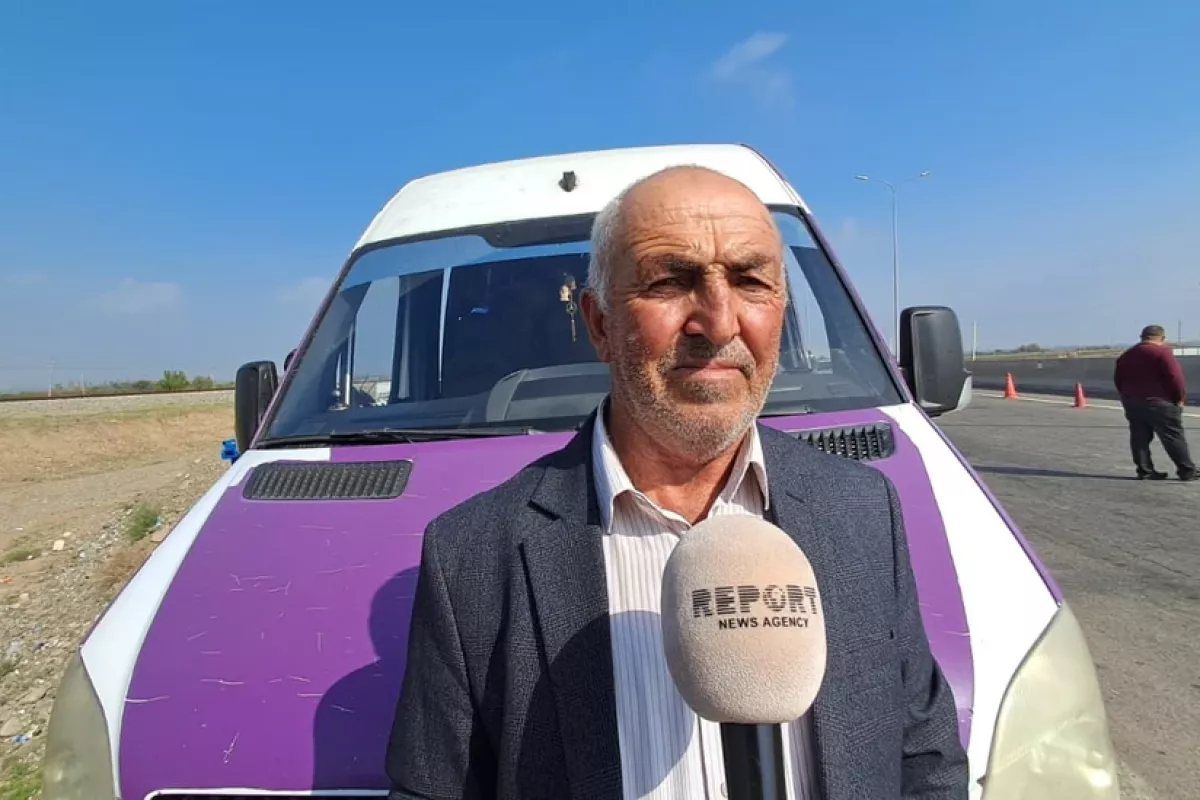
Bayram Guliyev, a resident of Vangli, highlighted the village’s rich historical heritage, saying local people had long been interested in preserving it.
“Our village is home to numerous historical monuments. Since childhood, we’ve had a deep interest in them. However, at that time, Armenians not only prohibited us from entering these historic sites but also stopped us from even approaching them,” Guliyev recalled.
Aghdara, a strategically vital district in Azerbaijan's Karabakh region, was occupied by Armenian forces during the First Karabakh War (1988–1994). By 1992, the entire district—spanning about 1,150 km² with over 20 villages, fertile lands, and the Sarsang Reservoir—was under Armenian control, displacing around 15,000 Azerbaijani residents. Infrastructure was systematically destroyed, and the area served as a military outpost.
The district's liberation occurred in two phases during the Second Karabakh War (September 27–November 10, 2020). Azerbaijani forces first recaptured key strategic heights in the Aghdara direction on September 27, 2020, disrupting Armenian supply lines. Further advances in October secured villages like Sugovushan and Talish on October 3, restoring water supplies to northern Azerbaijan and marking a pivotal northeastern front victory.
The war ended with a tripartite ceasefire on November 10, 2020, signed by Azerbaijan, Armenia, and Russia. Under the agreement, the remaining occupied territories, including Aghdara's full extent, were returned without further combat. Azerbaijan's sovereignty was fully restored by late 2020, with no casualties in the final handover.
Post-liberation, Aghdara was re-established as an administrative district in 2021. Reconstruction under the Great Return program has accelerated: By March 2025, 50 families (166 people) had been resettled in Hasanriz village; highways like Sarsang-Umudlu (9.4 km) were inaugurated; and residential complexes were built in Sugovushan. Demining continues, with recent discoveries of mass graves highlighting occupation atrocities. As of October 2025, over 100 families have returned, symbolising national revival amid ongoing mine clearance across 12 districts.
By Aghakazim Guliyev




